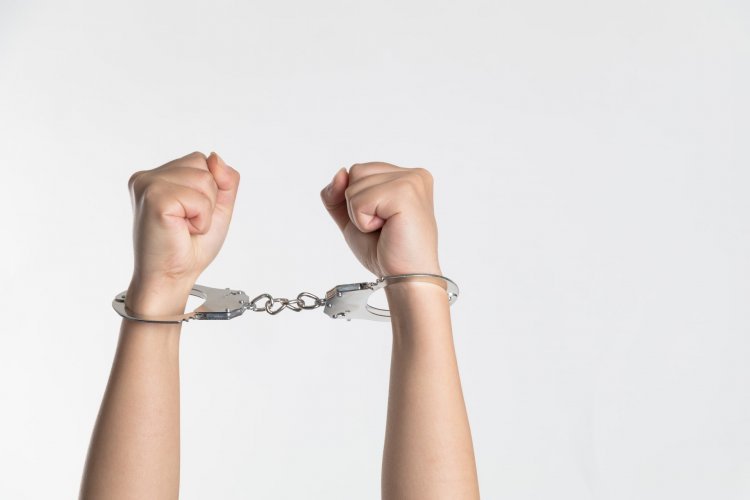DELAYING THE PRONOUNCEMENT OF THE JUDGEMENT AND STATUTE OF LIMITATIONS
How is statute of limitations applied on the decision on delaying the pronouncement of the judgement?

DELAYING THE PRONOUNCEMENT OF THE JUDGEMENT AND STATUTE OF LIMITATIONS
The prosecution proceedings are suspended temporarily by the "decision on delaying the pronouncement of the judgement".
Abstract The prosecution proceedings are suspended temporarily by the "decision on delaying the pronouncement of the judgement". According to the law, during the probation implemented with the "decision on delaying the pronouncement of the judgement", statute of limitation suspends. In cases where a new intentional crime is committed during the period of probation period, or the obligations related to the probation is violated, the statute of limitation will start proceeding again. In our article, we will explain, from which date that the statute of limitation will start to run and which date should be considered as the moment of the suspension of the statute of limitation, in case of a new intentional crime has been committed during the probation period.
Key Words: Decision on delaying the pronouncement of the judgement, probation, suspension, statute of limitation.
Introduction:
The decision on delaying the pronouncement of the judgement, set out in Article 231 of the Code of Criminal Procedure No. 5271, is an institution that ensures that the sentence imposed on the defendant does not result during a certain period of probation, if he does not commit a new intentional crime and acts in accordance with his obligations.
In accordance with Paragraph 8 of Article 231 of the Criminal Procedure Code, the statute of limitation is suspended by the "decision on delaying the pronouncement of the judgement".
1-) Moment of the Suspension (Starting) of the Statute of Limitation:
Since a motion of opposition is possible against the "decision on delaying the pronouncement of the judgement" in accordance with Turkish Criminal Procedure Code's 231/12 provision, the complainant or defendant can apply for appeal within the period. If the motion of opposition is not filed in time or the motion is rejected, the "decision on delaying the pronouncement of the judgement" becomes finalized. The law only includes the provision that the statute of limitation is suspended during the probation. Therefore, there is no clear provision as to whether the statute of limitation is suspended with the "decision on delaying the pronouncement of the judgement" or with the finalization of the decision. It is our opinion that the statute of limitation starts running with the finalization of the "decision on delaying the pronouncement of the judgement".
As a matter of fact, in the decision of the 3. Criminal Chamber of the Court of Cassation (Court Merits No. 2012/19339, Decision No. 2013/19755 of 14/05/2013) it is ruled that "the 5-year probation period, provided by Article 231/8 of the Criminal Procedure Code No. 5271, will begin from 17/04/2009, the date of finalization of the decision on delaying the pronouncement of the judgement". In the decision, it was stated that the period of probation will start running with the finalization of the decision. Therefore, since the 5-year probation will begin with the finalization of the "decision on delaying the pronouncement of the judgement", naturally the suspension of "statute of limitation" should also be the finalization date of the "decision on delaying the pronouncement of the judgement". In practice, it can also be said that the consensus is that the "statute of limitation" will suspend from the finalization of the "decision on delaying the pronouncement of the judgement" and will start running from where it left off, if intentional crimes are committed during the probation or in violation of the obligations related to the probation.[1]
2-) Moment of the Proceeding of the Statute of Limitation:
Another issue that has different opinions in practice is from which date the "statute of limitation" -which has suspended in case of the commission of a new intentional crime during the probation period- starts to proceed again.
It should be noted that there is no clear provision of the law, that the statute of limitation will suspend until the date of finalization of the crime committed during the probation. There are different views in the doctrine and among the Court of Cassation Chambers as to the date on which the statute of limitation will be suspended. An opinion in the doctrine stated that the statute of limitation will start to run again with the disappearance of the element that makes up the cause for the suspension. [2]
In our opinion, in this case, if a new crime is intentionally committed during the probation or if the obligations related to the probation are violated, the "statute of limitation" will start to run again on the date when the new crime is committed or the obligations related to the probation are violated. At the heart of this idea lies, the disappearance of the reason for the suspension of the "statute of limitation" and therefore the disappearance of the reason that formed the basis of the "decision on delaying the pronouncement of the judgement". However, according to the "presumption of innocence" contained in the Articles 38/4 of the Constitution and 6/2 of the European Convention on Human Rights, in order for the pronouncement of the judgement for the new intentional crime committed during the probation period, the verdict on the conviction for the intentional crime noticed must be finalized. No doubt, at this point also, the "In Dubio Pro Reo" (innocent until proven guilty) principle should be applied if there is no final judgement. However, waiting for the judgement to be finalized in order for the "statute of limitation" start proceeding again will cause the person to be under the threat of penalty for a long time, which is contrary to the purpose of Criminal Procedure.
As a matter of fact, the General Assembly of Criminal Chambers also pointed to this in its decision, Merits No. 2015/1166, Decision No. 2019/556 [3]
The main reason why this situation is important, is so that the person is not constantly threatened with penalty because of long-term trials. For instance, a person has been sentenced to "the decision on delaying the pronouncement of the judgement" for a crime he committed in 2015, and the person has committed a new crime in 2019, and his trial continues. In this case, although it is included in the law that the "statute of limitation" will be suspended during the probation period, if a crime has been committed during the probation period, as in the example, it should be accepted that the "statute of limitation" of the crime subject to the "decision on delaying the pronouncement of the judgement", proceeds until the crime committed within the probation period is finalized. This interpretation would be more convenient for the purpose of the legislator and the most appropriate solution in terms of eliminating the consequences that would undermine the principle of "security of the law" that will occur due to the long duration of the trial. In point of fact, as we agree, this opinion is majority in the General Assembly of Criminal Chambers [4]and the doctrine.
Conclusion:
If the "decision on delaying the pronouncement of the judgement" is ruled, the statute of limitation will be suspended on the date of the "decision on delaying the pronouncement of the judgement", and if a new intentional crime is committed during the probation period or obligations related to the probation measure are violated, the statute of limitation will begin to proceed again from the date of the "decision on delaying the pronouncement of the judgement". At the bottom of this view, which is mostly adopted in the Court of Cassation and doctrine, lie legal security and the fact that the person does not remain under the threat of punishment for many years.
[1] Evaluation of Current Issues Related to The Delaying the Pronouncement of the Judgement in The Light of The Decisions of The Court of Cassation, Caner Gürühan, p. 138.
[2] Dönmezer-Erman, p. 279.
[3] General Assembly of Criminal Chambers Merits No. 2015/1166, Decision No. 2019/556.
[4] General Assembly of Criminal Chambers Merits No. 2017/819, Decision No. 2019/700






































